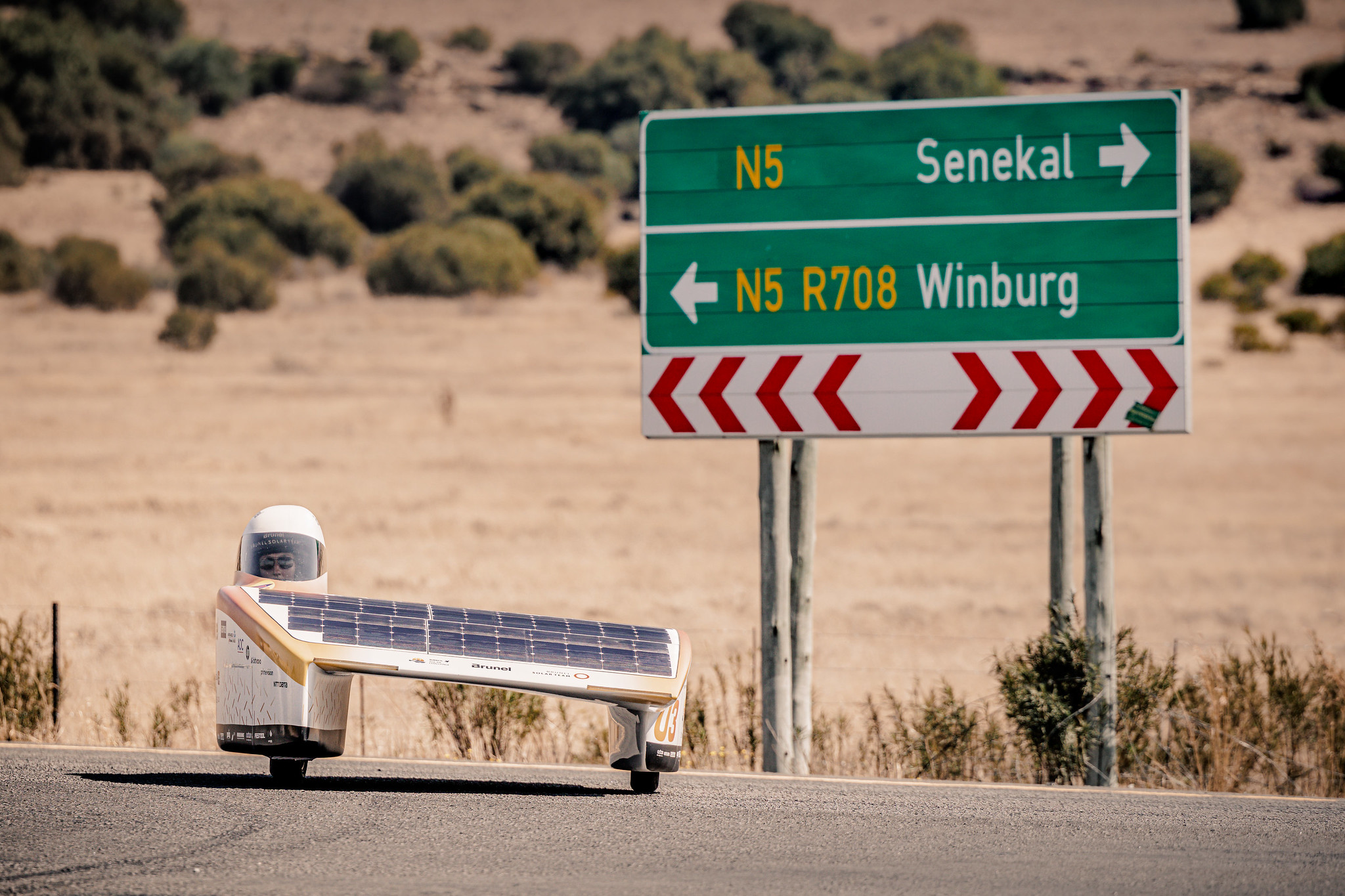The Brunel Solar Team is currently playing leapfrog with the Belgian Agoria Team in the Sasol Solar Challenge in South Africa.
Delft solar-powered tricycle is currently racing through South Africa. (Photo: Jorrit-Lousberg)
Last Friday, 9 September, the Sasol Solar Challenge started in Johannesburg. It is an eight-day race for solar cars across South Africa over a distance of 2,500 kilometres. The team that completes the most kilometres in the allotted time wins. The route has extra ‘loops’ that the teams can complete several times to push up the kilometre counter.
Just before the race, the Delft team suffered a major setback. Their new engine, their secret weapon in the race, was not available. Various delays meant that the tests could not be completed and the engine was not allowed to be used during the race. There was no choice but to continue using the previous ‘old’ electric motor in their Nuna 11s.
The Delft team was given a penalty
The first racing day, Friday 9 September, ended fantastically for the TU Delft team with a 100 kilometre lead over its strongest competitor, the Agoria Solar Team from the University of Leuven. The Delft team was able to complete two rounds of 50 kilometres, while the Belgian team had to contend with breakdowns in their support vehicle.
The next day it turned out that the Delft team had continued a little too long. They were therefore given an 18 minute penalty, and waved off the other teams. By the end of the day, their lead had shrunk to 60 kilometres.
On Sunday 11 September, the third day of the race, the Belgian team overtook them. The Belgian team managed to complete an extra 80 kilometres of bad road surface in cloudy weather, and the Dutch team, who were more cautious, did not match this. Consequently, the Belgian team started this Monday with (only) a 20-kilometre lead.
- Follo the Brunel Solar Team live
- Follow the Agoria team live
- More about the Sasol Solar Challenge
Do you have a question or comment about this article?
j.w.wassink@tudelft.nl


Comments are closed.